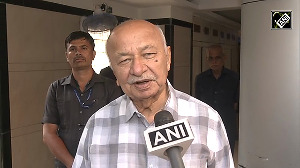 Everything in life comes with options. On a few occasions, one option will stand out from the rest for various reasons. However, on most occasions the options on hand are just too complex in nature to choose immediately. This calls for a deep insight and an analysis from all sides on the options available on hand before a conclusion can be reached.
Everything in life comes with options. On a few occasions, one option will stand out from the rest for various reasons. However, on most occasions the options on hand are just too complex in nature to choose immediately. This calls for a deep insight and an analysis from all sides on the options available on hand before a conclusion can be reached.
One such scenario -- and the most common of all -- is whether to buy a house or rent a house. Logically speaking, buying a house is the best option particularly when you are young and even if it means paying EMIs for many years.
But how does this compare to renting a house? What if you can rent a house for a lesser amount now, much less than the EMI you would be paying for your home loan, invest this difference between the rent you pay and the EMI in the many financial instruments and let it grow and later on buy a house. Does it make sense? How does the idea of owning a house would mean to you financially or is it just a matter of security?
To find out which option is financially better we need to make a comparative study of the two.
The two options available to you
Option 1 is to buy a house today. All of us know that the basic steps would be to make a down payment, take a home loan and pay EMIs for say the next 20 years for the remaining amount. And at the end of the 20 years, the house is all yours. Simple!
Now let us see option 2 that is to rent a house today, and buy it later. The scenario would be like this. You pay a rental deposit, and pay rent every month which is less than the EMI that you would have paid on taking a home loan. You then invest this difference amount in a regular basis in various financial instruments, allow it to grow say for 20 years and then buy a house from the investments that you had made. Sounds logical, is it?
Buying and renting: How do they compare?
Now let us get deeper into these calculations.
Buying a house
Here's an example: A 1000 sq ft double bedroom apartment in the suburbs of a metro say, Mumbai would cost around Rs 75 lakh today. And if you are going for a home loan at 85 per cent of the cost you would be required to make a down payment of say Rs.11.25 lakh that is 15 percent of Rs 75 lakh. This effectively means a home loan of Rs.63.75 lakh.
Considering the rate of EMIs around Rs 1,025 per lakh, you would pay roughly Rs. 65,344 every month for the next 20 years after which you own the house.
Now there are a few other points to be considered before jumping to any conclusion like the value of the apartment at the end of 20 years. Going by historic data, real estate investment has given a return of around 15 percent a year over the long term. And even if you assume a modest 10 percent return, the value of your house after 20 years would be Rs 5.06 crore!
Option 2: Rent house now, buy it later
Now let us see with the same example in the "rent house now, buy it later" scenario.
You will be required to pay a rent of Rs 22,000 every month for a 1000 sq ft 2 bedroom apartment in a suburban metro, say Mumbai. This amount is substantially lesser than the EMI that you would be paying every month for your home loan that is, Rs 65,344. But the important question here is whether you would be able to invest the difference of Rs 43, 344 (Rs 65,344 Rs 22,000) every month for the next 20 years? Probably you cannot. One important reason among others is unlike the EMI, the rent value increases every year.
Let us assume that there is a 6 percent increase in rent every year. So the actual difference between the rent and the EMI would shrink every year. And so is your investment every month! Ironically, in the 20th year, the rent will be slightly higher than the EMI!!
Even if you manage to invest every month for 20 years and assuming it was on stocks as they are good when invested on a long term basis, even a 12 per cent return could see your investments grow only to Rs 2.82 crore at the end of the 20 years. And if you add the down payment of Rs 11.25 lakh that you could have paid for your home loan plus the 12 percent interest on it, still your investment put together at the end of 20 years will be somewhere around Rs 3.91 crore.
In contrast, the value of your own house would be Rs 5.06 crore at the end of 20 years!
So what should you choose and why?
Buying a house now makes financial sense, more so for the reason that buying a house would mean an asset that would keep appreciating in its value.
There are other factors too like the impact of income tax on your EMIs for home loans and HRA for rental purposes which could be the same. However, the rental deposit that would pay will be returned to you without any interest when you vacate a rental premises and this could actually work in favour of buying a house.







 © 2025
© 2025